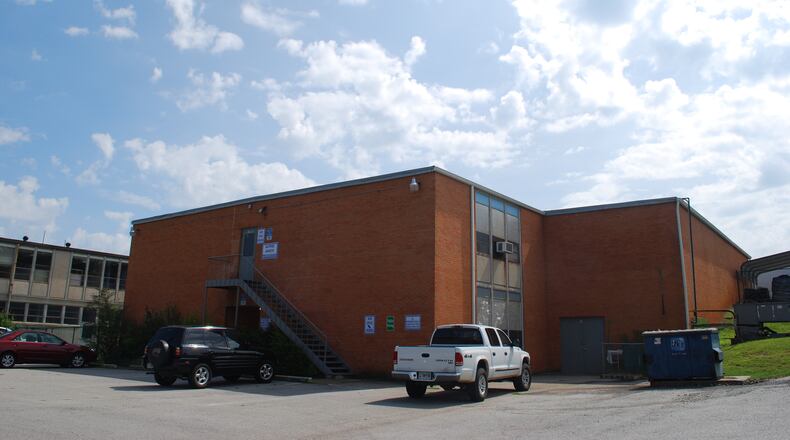Forty-five years ago, Georgia educators came up with what they considered a progressive way to help students with behavioral disorders. They surely could not have imagined that their creation would eventually be seen as a vehicle for state-imposed segregation that harms the children they wanted to help.
Credit: Lois Norder
Credit: Lois Norder
Following a lengthy investigation, the U.S. Justice Department says that Georgia is illegally segregating students with disabilities in separate schools that often are old, dirty, poorly maintained and, in some cases, the very same buildings that served only black students before court-ordered integration.
One school in the Georgia Network for Educational and Therapeutic Support requires disabled students to use segregated restrooms and an entrance that keeps them apart from other children. Another school reportedly makes disabled students stay in the basement all day. Others lack libraries, gymnasiums, science labs, cafeterias, playgrounds: just about every other amenity that is taken for granted in regular schools.
By forcing about students to attend such programs, the Justice Department says, Georgia is violating the Americans with Disabilities Act. The department is threatening to take the state to court to force compliance.
How this separate and (the feds say) unequal system operates and who is responsible are complicated questions – complicated enough that the state officially doesn’t recognize the schools as schools.
The 24 GNETS programs operate with state money – about $70 million this year. But local school districts don't run most of the programs. In most instances, the "fiscal agent" is instead a Regional Education Service Agency, or RESA.
What’s a RESA? Here’s the explanation on the state Education Department’s website:
“The agencies were established for the purpose of sharing services designed to improve the effectiveness of the educational programs of member school systems. In addition, the RESAs assist the State Department of Education in promoting its initiatives. The RESAs inform systems of innovation and gather research on programs as needed.”
Well, obviously.
In any event, the GNETS programs accept students from multiple school districts, which keep the students on their rolls but have no ownership of or responsibility for the schools they attend.
Consider the GNETS school in Cordele, the one cited by the Justice Department for segregated restrooms and lunch periods and a separate entrance where disabled students, unlike their peers without disabilities, must pass through a metal detector.
Some of that school's students come from Crisp County – but the school itself isn't part of the Crisp County School System. Therefore, Crisp County officials say it was unfair for the Justice Department (and the AJC) to single out a school "in Cordele."
“We are highly offended that our town, Cordele, leads off an article referring to illegally segregating disabled students,” Cindy Hughes, an assistant school superintendent in Crisp County, told a reporter by email Thursday.
Of course, the state doesn’t recognize the GNETS school in Cordele, or any of the others, as schools at all.
Rather, the Education Department says on its website, each GNETS program is a “special entity.”
The website goes on to define a “special entity” as “an educational facility other than a school that houses students for all or part of the instructional day and does not report students for the purpose of earning FTE-based QBE funds.”
Well, again, obviously.
This bureaucratic haze obscures the 5,000 or so students who, at any point in the school year, attend a GNETS program.
The Justice Department found that schools often assign students to GNETS after just one outburst, such as using inappropriate language with a teacher. Parents are told their children need services offered only through GNETS.
In reality, the Justice Department says, many GNETS schools provide instruction only in core academic subjects, often at below grade level. Some schools give lessons only online; the students have no regular interaction with a teacher. Electives – art, music, foreign language, vocational courses – are rare.
For students, being referred to GNETS can become a self-fulfilling prophecy.
“Once you are in GNETS, you are considered a ‘bad kid,’” a parent told Justice Department investigators. “It’s a warehouse for kids the school system doesn’t want or know how to deal with.”
About the Author
The Latest
Featured




